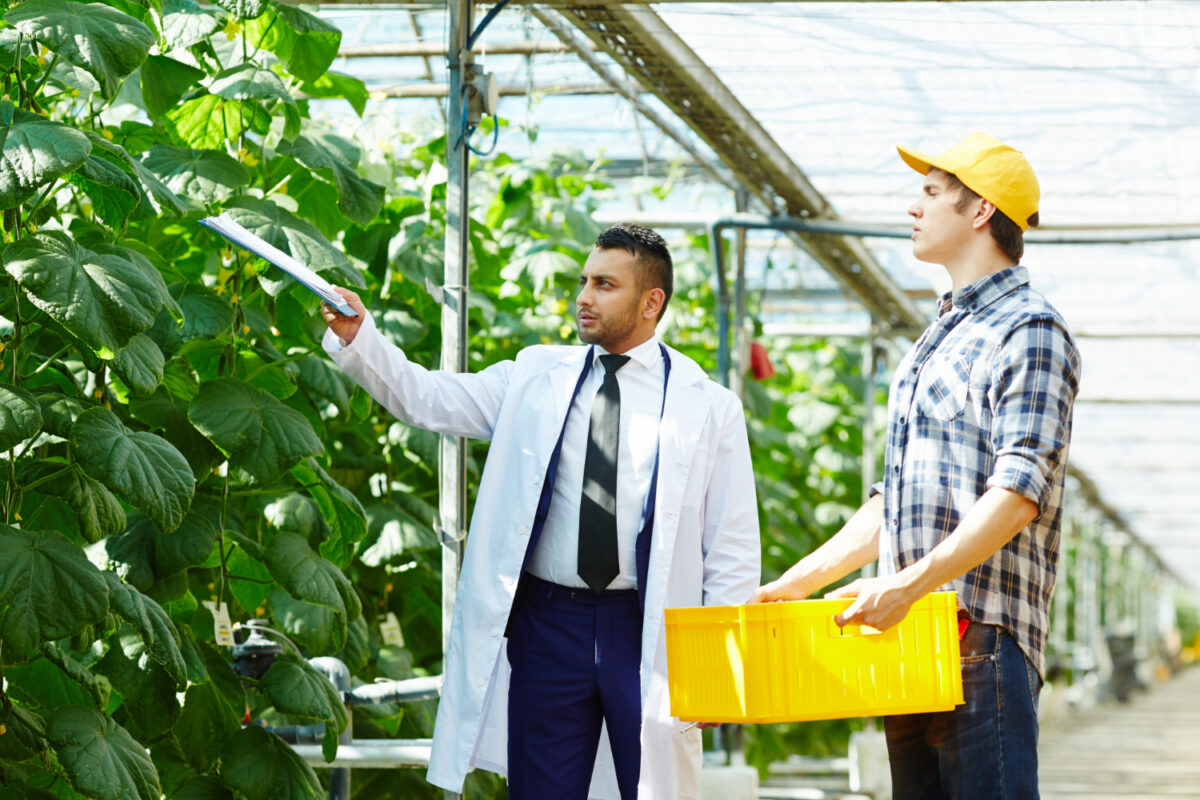The Future of Horticulture Management Education and Industry Trends

Horticulture management is a multifaceted field that encompasses the cultivation, management, and marketing of plants for various purposes. Including food production, landscaping, ornamental gardening, and environmental conservation. As the world grapples with pressing challenges such as climate change, food security, and urbanization. The demand for skilled horticulture professionals is on the rise. In this comprehensive guide, we’ll explore the future of horticulture management education and industry trends. Examining how institutions and professionals are preparing to meet the evolving needs of the horticulture sector in the 21st century.
Evolution of Horticulture Management Education:
-
Interdisciplinary Approach:
The future of horticulture management education lies in embracing an interdisciplinary approach that integrates knowledge and techniques from diverse fields such as agronomy, botany, soil science, environmental science, business management, and technology. By providing students with a holistic understanding of the complexities of horticulture. Interdisciplinary programs prepare them to tackle real-world challenges and opportunities in a rapidly changing agricultural landscape.
-
Hands-on Learning:
Hands-on learning experiences such as internships, practicums, field trips, and research projects are integral to horticulture management education. These immersive learning opportunities allow students to gain practical skills, develop critical thinking abilities, and apply theoretical knowledge in real-world settings. Institutions that prioritize hands-on learning foster a culture of innovation, experimentation, and lifelong learning, preparing students to excel in diverse horticulture-related careers.
-
Technology Integration:
The integration of technology into horticulture management education is essential for preparing students to leverage cutting-edge tools and techniques in their professional endeavors. From precision agriculture and remote sensing to greenhouse automation and hydroponic systems. Technology is revolutionizing the way horticulture is practiced and managed. Institutions that incorporate technology into their curriculum equip students with the digital literacy and technical skills needed to thrive in an increasingly tech-driven industry.
-
Sustainable Practices:
Sustainability is at the forefront of modern horticulture management education, as professionals seek to minimize environmental impact. Conserve natural resources, and promote resilience in agricultural systems. Courses and programs that focus on sustainable horticulture practices, organic farming methods, integrated pest management. Agroecology empower students to develop environmentally responsible solutions to global challenges such as climate change, water scarcity, and biodiversity loss.
-
Entrepreneurship and Innovation:
The future of horticulture management education is characterized by a focus on entrepreneurship and innovation. Students are encouraged to explore new business models, develop innovative products and services, and pursue entrepreneurial ventures in the horticulture industry. Institutions that foster an entrepreneurial mindset provide students with the knowledge, skills, and resources to identify market opportunities. Assess feasibility, and launch successful horticulture-related businesses.
Industry Trends in Horticulture Management:
-
Urban Agriculture:
The trend towards urbanization has led to a growing interest in urban agriculture, as city dwellers seek to grow their own food, beautify urban spaces, and promote community resilience. Rooftop gardens, vertical farms, community gardens, and hydroponic systems are just a few examples of innovative urban agriculture initiatives that are reshaping the horticulture landscape in cities around the world. As urban populations continue to grow. The demand for skilled horticulture professionals who can design, manage, and sustain urban agricultural projects is expected to rise.
-
Sustainable Landscaping:
With increasing awareness of environmental conservation and ecosystem restoration. There is a growing demand for sustainable landscaping practices that prioritize native plants, water conservation, and habitat preservation. Landscape architects, designers, and horticulture professionals are incorporating sustainable principles into their projects. Such as xeriscaping, rain gardens, green roofs, and naturalistic planting designs. As society places greater emphasis on sustainability and environmental stewardship. The demand for professionals who can create and maintain sustainable landscapes is expected to increase.
-
Plant-Based Medicine:
The use of plants for medicinal purposes, also known as phytotherapy or herbal medicine. Is experiencing a resurgence in popularity as people seek natural alternatives to conventional pharmaceuticals. Horticulture professionals with expertise in medicinal plants. Botanical pharmacology, and herbal product development are in high demand in the herbal medicine industry. Which includes sectors such as herbal supplements, botanical extracts, and natural skincare products. As consumer interest in plant-based medicine continues to grow. So too will the demand for skilled horticulture professionals who can cultivate, process, and commercialize medicinal plants.
-
Greenhouse and Controlled Environment Agriculture:
Greenhouse and controlled environment agriculture (CEA) are revolutionizing the way crops are grown by providing optimal growing conditions year-round, regardless of climate or geographic location. High-tech greenhouse facilities equipped with climate control systems, hydroponic or aeroponic growing systems. And, LED lighting enable growers to produce high-quality crops with minimal environmental impact. The expansion of greenhouse and CEA operations is driving demand for horticulture professionals. Who can design, manage, and optimize these advanced growing systems to maximize productivity and profitability.
-
Sustainable Food Production:
As concerns about food security, climate change, and resource depletion mount. There is a growing emphasis on sustainable food production systems that prioritize efficiency, resilience, and environmental stewardship. Sustainable agriculture practices such as agroforestry, permaculture, regenerative farming, and organic agriculture are gaining traction as viable alternatives to conventional farming methods. Horticulture professionals who specialize in sustainable food production are essential for developing and implementing innovative solutions to address global challenges and create a more resilient and equitable food system.
-
Digital Agriculture and Precision Horticulture:
The advent of digital agriculture and precision horticulture technologies is transforming the way crops are grown, managed, and monitored. Remote sensing, drones, GPS technology, and data analytics are being used to collect real-time data on soil health, crop growth, and environmental conditions. Allowing growers to make informed decisions and optimize resource allocation. Horticulture professionals with expertise in digital agriculture and precision horticulture are in high demand for roles. Such as data analysts, agronomists, and farm managers as the industry continues to embrace technology to improve productivity, sustainability, and profitability.
-
Consumer Trends and Market Demand:
Changing consumer preferences, demographic shifts, and market trends are shaping the horticulture industry, driving demand for new products, services, and experiences. Trends such as plant-based diets, wellness and self-care, biophilic design, and sustainable living are influencing consumer behavior and driving demand for horticulture-related products and services. Horticulture professionals who can anticipate and respond to these trends are well-positioned to capitalize on emerging market opportunities and meet the evolving needs and preferences of consumers.
Conclusion:
The future of horticulture management education and industry trends is characterized by innovation, sustainability, and resilience in the face of global challenges. As the horticulture industry continues to evolve, institutions and professionals adapt to meet society’s and the environment’s changing needs. By embracing interdisciplinary approaches, technology integration, sustainable practices, entrepreneurship, and innovation. Horticulture management education programs are preparing students to become the next generation of leaders and innovators in the dynamic and evolving field of horticulture.
Likewise, industry professionals who stay abreast of emerging trends and market opportunities will be well-positioned to thrive in a rapidly changing landscape, driving innovation, sustainability, and growth in the horticulture industry for years to come.
Looking for a Diploma in Horticulture? Visit our website today and explore Online Agriculture Courses in Australia.










